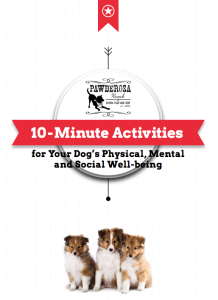Have you noticed that your dog doesn’t chase after the ball with as much enthusiasm as he once did or that he seems a bit sluggish on his nightly walk? It’s sad but inevitable. Eventually, your dog is going to get old, but that doesn’t mean you won’t love him all the same.
Every dog ages differently depending on their size and breed. Typically, larger dogs age more quickly than smaller ones. On average though, most dogs reach their senior years between the age of 7 and 10. As dogs get older, they may require extra attention and care to make sure they stay happy and healthy. Here are 5 tips you can follow to care for your senior dog.
Schedule Regular Checkups for Your Senior Dog
[highlight align=”left, right, center” style=”default, different”]Just as you should see your doctor every year for a physical, it is also important for a dog to get regular wellness checkups. As dogs age, this becomes even more important. The ASPCA recommends that older dogs see the vet every six months for a thorough exam. This ensures that if any problems should arise they can be detected early and have a better chance of being treated.[/highlight]Feed Your Senior Dog a Nutritious Diet
[highlight align=”left, right, center” style=”default, different”]Diet becomes increasingly important in a dog’s later years. Proper nutrition will help your dog stay healthy and active. For example, dogs with arthritis or other joint problems may require a diet with more fatty acids like DHA or EPA while a dog with heart problems may need food that is lower in sodium. Talk to your vet to determine the best diet for your senior dog.[/highlight]Keep Your Senior Dog at a Healthy Weight
[highlight align=”left, right, center” style=”default, different”]It is critical for senior dogs to maintain a healthy weight. Overweight dogs run an increased risk of developing conditions such as diabetes, heart disease, or skin disease. Further, excess pounds may add stress on your dog’s body and lead to joint pain and mobility issues. A healthy weight will help your dog fight off some of the effects of aging. [/highlight]Regularly Exercise Your Senior Dog
[highlight align=”left, right, center” style=”default, different”]Even though your dog might not be as mobile and agile as he once was, it is still important for him to get regular exercise. Physical activity will help maintain healthy joints and muscles as well as an appropriate weight. Regular exercise is also important to your dog’s mental health, which is critical to his overall well-being.[/highlight]Take Care of Your Senior Dog’s Teeth
[highlight align=”left, right, center” style=”default, different”]Dental health is important for all dogs; however, it is extra critical for senior dogs, as they are more susceptible to developing dental diseases. Dental disease can be very painful and may cause your dog to have difficulty eating or stop eating all together. This may result in weight loss and an unhealthy coat of fur. Additionally, certain dental diseases, like gingivitis, may cause bacteria to get into the bloodstream and harm your dog’s internal organs. Make sure you brush your senior dog’s teeth regularly and give him teeth cleaning treats and toys.[/highlight] [highlight align=”left, right, center” style=”default, different”]It can be difficult to see your dog age, but that doesn’t mean his senior years still can’t be filled with happiness and good health. He might just require a little extra care and proactiveness from you. [/highlight]For tips on how to keep your dog active and healthy, download our free 10-Minute Activities guide!
Recommended Posts




